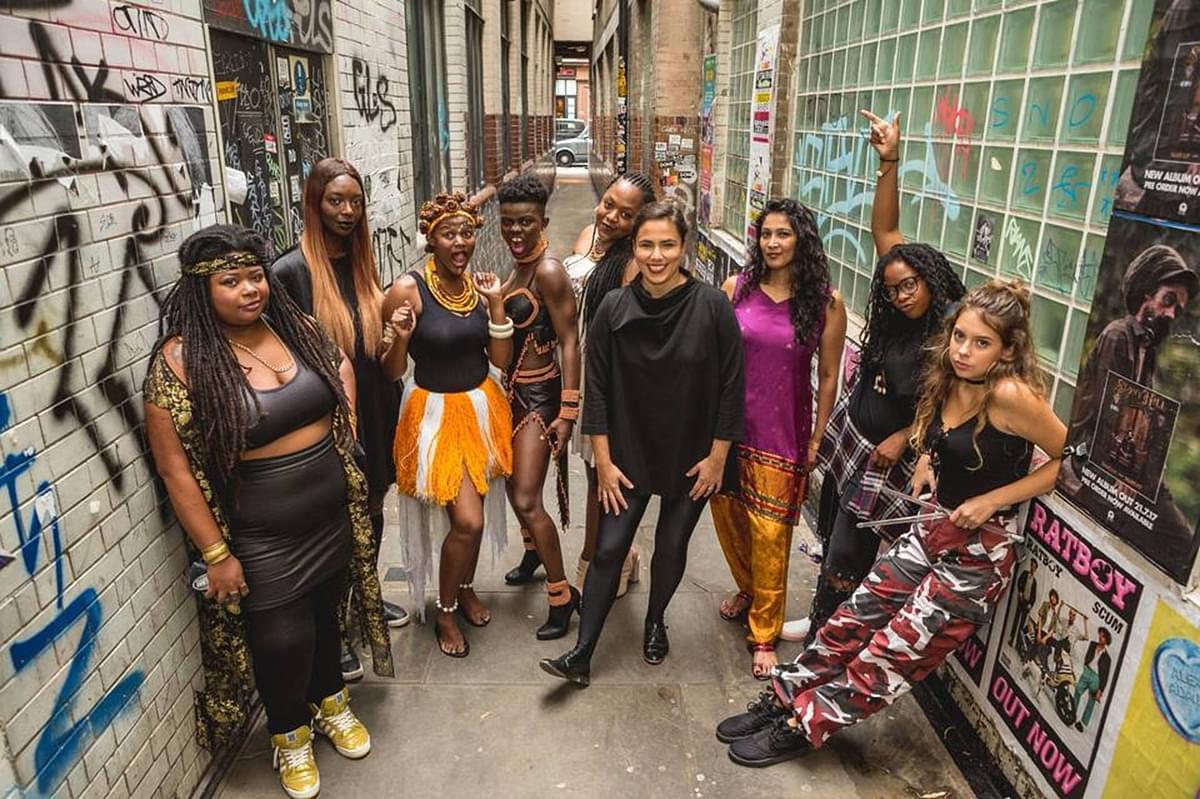
GRRRL's Sohini Alam on being a brown musician
Sohini Alam is a British-Bangladeshi singer and part of GRRRL, a collective of revolutionary women brought together by the organisation In Place of War to make electronic music fuelled by backgrounds from Brazil to Ghana to Venezuela. Here, Alam tells Best Fit how she's often pigeonholed because of the colour of her skin, and how she's using GRRRL to break out of those boxes.
Not too long ago, I was performing at the Konzerthaus in Vienna. It’s a beautiful building that is known for showcasing the best in Western Classical music.
While I typically sing in Bengali, on this occasion, I was to sing in Tamil along with a full orchestra, i.e. I was slightly outside the usual programming of the venue. I showed up to the venue in jeans and a tank top for rehearsal. Anyone who knows me can confirm that I have a terrible sense of direction. As I am well aware of my shortcomings in this department, I walked up to the first person I saw to ask for directions. The person was unloading boxes to take into the venue when I said, “Hello. Would you be able to tell me how to get to the stage, please?” He turned, took one look at me and asked, “Oh, are you here to do the catering?”
I resisted the urge to ask him if it was my brownness that made him assume that I must be there to handle the food. I resisted the urge to point out that I had asked for the stage rather than backstage. I resisted because I was used to resisting similar urges on multiple other occasions. I merely said, “No, I’m here to perform. Please tell me how to get to the stage.” I hadn’t quite realised how out-of-place I must have looked to him.
I’m not someone who has generally thought too much about the colour of people’s skin in relation to how I view them. The few times I have thought about it, I have been grateful to live in London where so many different kinds of people live in close enough proximity to one another to be able to share their ways of life, their music with one another.
Unfortunately, in a place that is overwhelmingly white, the colour of my skin appeared to give off signals about who I was and what I do for a living. While this is not quite a hardship, it is yet another reminder of the rarity of my people on the international music scene.
I didn’t start making music to represent, but it seems that where I am from and what I look like are reason enough for people to question my presence in certain spaces. To be constantly reminded of the colour of my skin is something that has been happening to me over the years.
I have learned this: I don’t mind the questioning of my being in a certain space as long as there is simple curiosity and a person is willing to let go of a stereotype should I not fit it. I do mind if I am pigeonholed and not allowed out because someone cannot fathom that I can exist as I do.
I once read an article by a young Sikh man in the UK that his schoolmate had never noticed his turban. The man seemed quite moved by the colour blindness. While that was his reaction, mine was, “How could someone not notice a bloody great turban on your head?” If I’d gone to the trouble of putting on a turban, I’d want you to notice it. I’d want you to ask me why I wear it. Not you, every last stranger I meet, but you the people with whom I interact.
It’s OK to be curious. It’s what creates interest in music in other languages (like Bengali, for instance). I look forward to the day when people from anywhere can not only be anything, but also exist without others’ preconceived notions of who they are.
Get the Best Fit take on the week in music direct to your inbox every Friday

Prima Queen
The Prize

Femi Kuti
Journey Through Life

Sunflower Bean
Mortal Primetime





